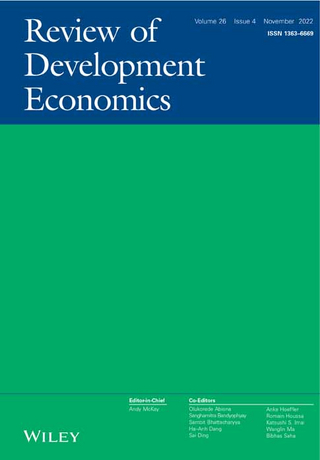
Network effects in household consumption patterns: evidence from Northern Ghana
Mellon Bedi, Shaibu / Lukas Kornher / Bekele Hundie Kotu/ Carlo AzzarriExternal Publications (2025)
in: Review of Development Economics, first published 22.06.2025
DOI: https://doi.org/10.1111/rode.13266
Open access
We study peer effects in consumption patterns and their associated welfare implications among rural farm households in northern Ghana using a panel data set. We construct a social interaction network based on household-specific locations and employ a spatial econometric approach that leverages the structure of the peer networks to identify peer effects. The results indicate that peers' consumption patterns significantly influence individual consumption decisions, with the magnitude of this effect varying across farm households depending on their resource endowments. We also find that information exchange and partial risk-sharing behaviors drive these peer effects. Overall, our findings suggest that government interventions aimed at enhancing household consumption through transfers would be more effective if targeted at households with relatively large peer networks. In addition, anti-poverty and income-improvement programs can leverage peer networks to enhance their overall impact.
